

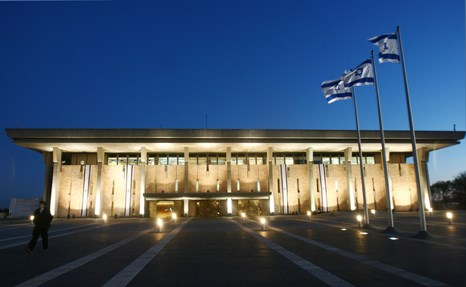
The Governance Bill: A Status Update
Written By: Prof. Gideon Rahat
An update on the status of the proposed Governance Bill and how it aligns with the recommendations of IDI researchers, which was written after IDI experts participated in Knesset committee deliberations.

The Referendum Law: A Wolf in Sheep’s Clothing
Written By: Prof. Yedidia Z. Stern
Is it advisable to hold a referendum on a peace deal involving territorial concessions? In an article originally published in the Israeli Bar Journal, IDI Vice President Prof. Yedidia Stern expresses his reservations—and proposes an alternative.
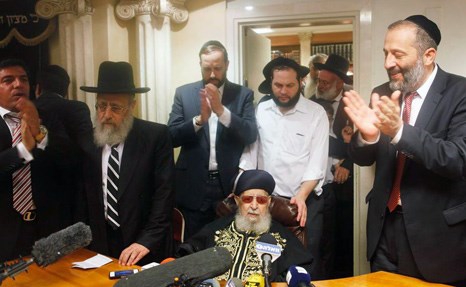
Israel's Chief Rabbinate: My Beloved Turned Away
Written By: Prof. Yedidia Z. Stern
In an op-ed in<em> The Jewish Week</em>, IDI Vice President of Research Yedidia Z. Stern asserts that the election of two Haredi Chief Rabbis was a failure on three levels: political, religious, and cultural.
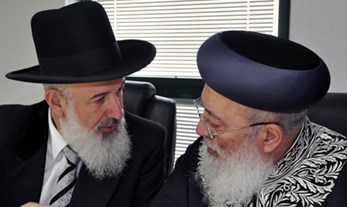
The Chief Rabbinate: A Religious Version of the State President
Written By: Yair Sheleg
In an op-ed in Maariv, Yair Sheleg argues that the current roles of the Israeli chief rabbinate should be split and the rabbinate should serve solely in its representative capacity in the future.
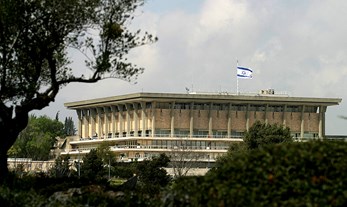
The Governance Bill: Pros and Cons
Written By: Dr. Arye Carmon, Prof. Gideon Rahat, Prof. Ofer Kenig, Reut Itzkovitch Malka
A video in which IDI researchers discuss some of the pros and cons of the Governance Bill being considered by the Knesset.

Haredi Integration: Not by Re-Education
Written By: Haim Zicherman
IDI researcher Attorney Haim Zicherman warns against attempts to integrate ultra-Orthodox Jews into the army by encouraging them to abandon their lifestyle, and calls for developing mechanisms that will accept and respect their values.
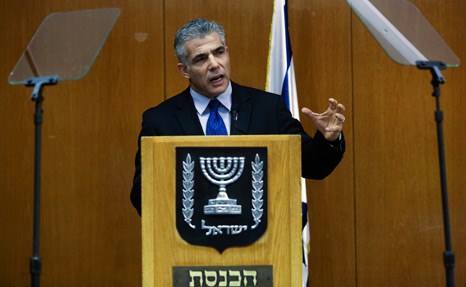
The Ultra-Orthodox Draft: A Test of the New Israeli Politics
Written By: Prof. Yedidia Z. Stern
IDI Vice President of Research Prof. Yedidia Stern warns that the hasty passage of the proposed government bill on the Haredi draft would be "old politics," and stresses the importance of a Knesset debate to arrive at balanced legislation that is in line with the national interest.

The Return of McCarthyism—In Israel
Written By: Dr. Amir Fuchs
In an op-ed in Haaretz, IDI researcher Attorney Amir Fuchs shares his thoughts on the proposed "NGO bill," which would limit donations to human rights organizations in Israel.

Has the Arab Spring Led to Democracy?
Written By: Prof. Ofer Kenig
Dr. Ofer Kenig, of IDI's Political Reform project, cautiously examines whether the events of the Arab Spring indicate the rise of substantial democracy in the Arab world or whether they merely exchanged one type of authoritarian regime for another—a non-liberal Islamic regime.

An Anti-Zionist Law
Written By: Dr. Amir Fuchs
In an op-ed in Haaretz, IDI Researcher Attorney Amir Fuchs warns that the proposed Basic Law: Israel as the Nation State of the Jewish People is not only anti-democratic but also undermines the foundations of Zionism.
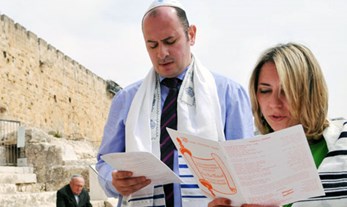
Reform and Conservative Jews in Israel: A Profile and Attitudes
Written By: Prof. Tamar Hermann, Mr. Chanan Cohen
What percentage of Jews in Israel define themselves as Reform or Conservative? What is their ethnic origin? Do they see themselves as being on the political and economic Right or Left? This article provides a glimpse into denominations of Judaism that exist in Israel, but for which there is very little current data.
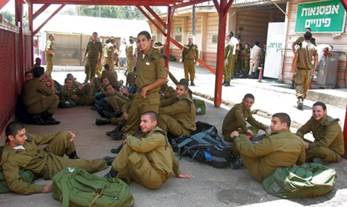
The Veterans Benefits Bill: Legal License to Discriminate
Written By: Prof. Mordechai Kremnitzer, Dr. Talya Steiner
Prof. Mordechai Kremnitzer and Attorney Talya Steiner warn that the proposed veterans benefits bill, which would give preferential treatment in employment, higher education, and housing to those who have served in the Israeli army, gives license to discriminate against Israel's Arab minority.
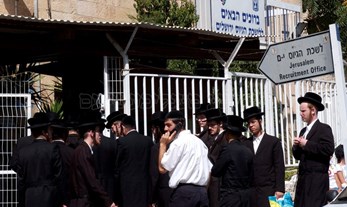
The Peri Committee Recommendations: Fanning the Flames of Haredi Extremism
Written By: Prof. Yedidia Z. Stern
IDI Vice President of Research Prof. Yedidia Stern warns that the Peri Committee recommendations on the ultra-Orthodox draft will undo progress already made in integrating Israel's Haredi community into Israeli society.

The ‘Jenin-Jenin Law’: A Blessing or a Curse?
Written By: Prof. Mordechai Kremnitzer, Dr. Amir Fuchs
In an op-ed in Maariv, IDI Vice President Mordechai Kremnitzer and Attorney Amir Fuchs warn that the proposed amendment to Israel's Anti-Defamation Law known as the 'Jenin-Jenin Law' will have the opposite of its intended effect.

The ‘Jenin-Jenin Law’: A Blessing or a Curse?
Written By: Prof. Mordechai Kremnitzer, Dr. Amir Fuchs
In an op-ed in <em>Maariv</em>, IDI Vice President Mordechai Kremnitzer and Attorney Amir Fuchs warn that the proposed amendment to Israel's Anti-Defamation Law, which would allow IDF soldiers to bring a class action suit for libel when the operational activities in which they participated are criticized in the media, will have the opposite of its intended effect.
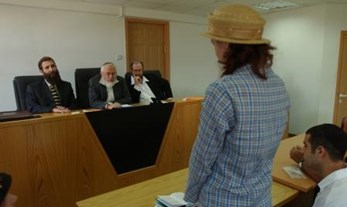
Conversion in Israel: From Bethlehem to Chelm to Sodom
Written By: Prof. Yedidia Z. Stern
IDI Vice President Prof. Yedidia Stern responds to the State Comptroller's findings on conversion in Israel and calls for a solution that will enable Israelis from the former Soviet Union to join the ranks of the Jewish people.
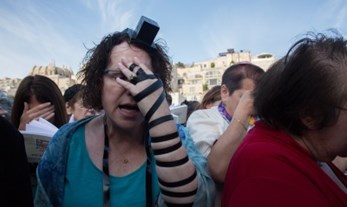
Israeli Public Opinion on the Women of the Wall
Written By: Prof. Tamar Hermann
IDI Senior Fellow Prof. Tamar Hermann, head of IDI's Guttman Center for Surveys, shares findings on the Israeli Jewish public's support of the right of the Women of the Wall to pray while wearing prayer shawls and phylacteries.

There’s No Monopoly on Human Rights
Written By: Dr. Amir Fuchs
IDI researcher Attorney Amir Fuchs welcomes the "Blue and White Human Rights" initiative of the Institute for Jewish Strategies, stressing that the fight for human rights in Israel should not be seen as limited to the political Left.

Basic Law: Israel as the Nationalist State of the Jewish People
Written By: Dr. Amir Fuchs, Prof. Mordechai Kremnitzer
In an op-ed originally published in Maariv, Prof. Mordechai Kremnitzer and Attorney Amir Fuchs warn that the Basic Law: Israel as the Nation State of the Jewish People would undercut the balance between the "Jewish" and "democratic" nature of the State of Israel.

Jabotinsky's Vision of a Democratic, Jewish Nation State
Written By: Dr. Amir Fuchs
In honor of Israel's 65th birthday, Attorney Amir Fuchs reflects on whether the reality of today's Israel adheres to the values and vision of early Zionist leader Ze'ev Jabotinsky.

Social Justice in Jewish-Arab Relations in Israel
Written By: Shlomit Kagya, Ola Nabwani, Avital Manor, Nabil Khattab, Sami Miaari
An article by members of IDI’s Arab-Jewish Relations research team, which explores the lack of social justice for Israel’s Arab minority in three areas: employment, healthcare, and the public sphere.

Israel at 65: The Tale of a Sleeping Beauty
Written By: Prof. Yedidia Z. Stern, Jay Ruderman
In an op-ed in <em>The Jewish Week</em>, IDI Vice President Prof. Yedidia Z. Stern and Jay Ruderman share thoughts on the successes of the State of Israel and on one area in which Israel has fallen short of expectations.
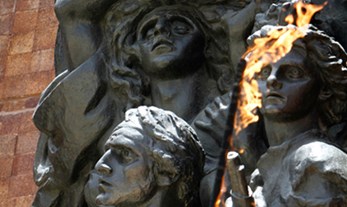
Judaism: A Movement of Rebellion throughout History
Written By: Benjamin (Benny) Lau
IDI's Rabbi Dr. Benjamin (Benny) Lau shares thoughts on the Warsaw Ghetto uprising, the Bar-Kokhba revolt, and the tension between Judaism as a nationality and Judaism as a religion.

Israelis Indifferent to Obama Visit
Written By: Prof. Tamar Hermann
In an op-ed in <em>Yedioth Ahronoth</em>, IDI Senior Fellow Prof. Tamar Hermann, head of the Guttman Center for Surveys, shares observations about the lack of public interest in President Obama's visit to Israel, citing figures from the February–March 2013 Peace Index.
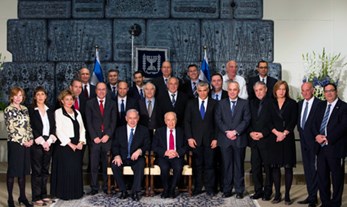
The New Israeli Cabinet: An Overview of the 33rd Government of Israel
Written By: Prof. Ofer Kenig
How many parties make up the 33rd government of Israel? How many first time ministers does the cabinet have? What is the breakdown of men and women in the government? Dr. Ofer Kenig presents an overview of the 2013 Israeli cabinet.
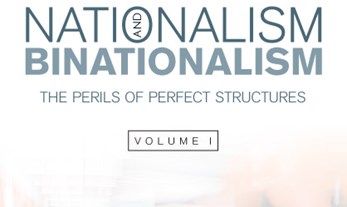
A Zionist State, a Binational State and an In-Between Jewish and Democratic State
Written By: Sammy Smooha
In this article, reprinted from Nationalism and Binationalism: The Perils of Perfect Structures, Prof. Sammy Smooha presents three models of Israel's national character, focusing on Israel's identity as a Jewish and democratic state.
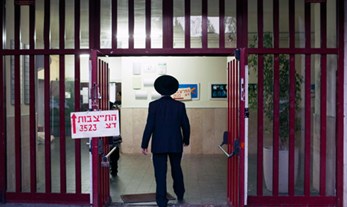
The Proposals for Drafting the Ultra-Orthodox in Israel: The Issues at Hand
Written By: Prof. Mordechai Kremnitzer
IDI's Prof. Mordechai Kremnitzer critiques various aspects of the proposals for integrating the ultra-Orthodox into the army and calls on the Israeli public to stand firm on its demand for an arrangement that is fair and equitable.
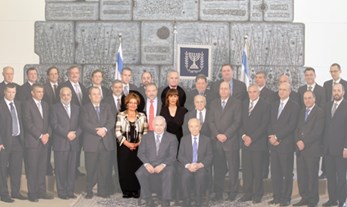
Time for More Women in the Israeli Cabinet
Written By: Prof. Ofer Kenig
IDI Researcher Dr. Ofer Kenig surveys the percentage of women in the Israeli cabinet since the founding of the State and calls for a change for the better.

The Haredi Draft: The Need for an Alliance of the Moderates
Written By: Prof. Yedidia Z. Stern
Prof. Yedidia Stern calls for a historic alliance between religious and secular moderates that will yield a solution that will that will yield a solution that addresses the need for ultra-Orthodox army service while taking into account the most important values of the Haredi community.

Tzipi Livni's great responsibility
Written By: Dr. Amir Fuchs
In an op-ed in Haaretz, IDI Researcher Attorney Amir Fuchs asserts that as Justice Minister, Tzipi Livni will have to restore confidence between the judicial system and political system and will have to serve as the representative of the judicial system to politicians.

